The earliest known human settlements in what is now the Democratic Republic of the Congo have been dated back to the Middle Stone Age, approximately 90,000 years ago. The first real states, such as the Kongo, the Lunda, the Luba and Kuba, appeared south of the equatorial forest on the savannah from the 14th century onwards.

Moïse Kapenda Tshombe was a Congolese businessman and politician. He served as the president of the secessionist State of Katanga from 1960 to 1963 and as prime minister of the Democratic Republic of the Congo from 1964 to 1965.

AbbéFulbert Youlou was a laicized Brazzaville-Congolese Roman Catholic priest, nationalist leader and politician, who became the first President of the Republic of the Congo on its independence.

The Second Congo War, also known as Africa's World War, the Great War of Africa, or the Great African War, began in the Democratic Republic of the Congo on 2 August 1998, little more than a year after the First Congo War, and involved some of the same issues.

The Angolan War of Independence, known as the Luta Armada de Libertação Nacional in Angola, began as an uprising against forced cultivation of cotton and evolved into a multi-faction struggle for control of Portugal's overseas province of Angola among three nationalist movements and a separatist movement. The war ended when a peaceful coup in Lisbon in April 1974 overthrew Portugal's Estado Novo dictatorship and the new regime immediately stopped all military action in the African colonies, declaring its intention to grant them independence without delay.
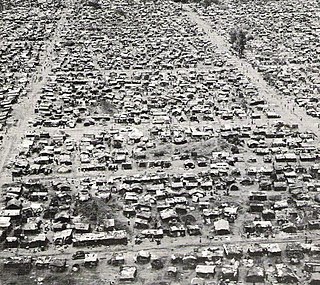
The Congo Crisis was a period of political upheaval and conflict between 1960 and 1965 in the Republic of the Congo. The crisis began almost immediately after the Congo became independent from Belgium and ended, unofficially, with the entire country under the rule of Joseph-Désiré Mobutu. Constituting a series of civil wars, the Congo Crisis was also a proxy conflict in the Cold War, in which the Soviet Union and the United States supported opposing factions. Around 100,000 people are believed to have been killed during the crisis.

South Kasai was an unrecognised secessionist state within the Republic of the Congo which was semi-independent between 1960 and 1962. Initially proposed as only a province, South Kasai sought full autonomy in similar circumstances to the much larger neighbouring state of Katanga, to its south, during the political turmoil arising from the independence of the Belgian Congo known as the Congo Crisis. Unlike Katanga, however, South Kasai did not explicitly declare full independence from the Republic of the Congo or reject Congolese sovereignty.

The United Nations Operation in the Congo was a United Nations peacekeeping force which was deployed in the Republic of the Congo in 1960 in response to the Congo Crisis. The ONUC was the UN's first peacekeeping mission with significant military capability, and remains one of the largest UN operations in size and scope.
Donald Gordon Payne was an English author, most famous for his 1959 novel, Walkabout. Payne was made a Fellow of the Royal Geographical Society in 1962.
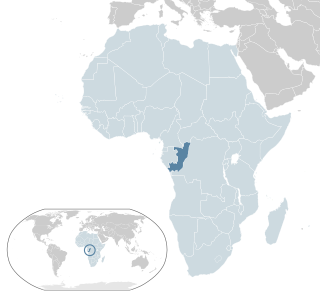
The Second Republic of the Congo Civil War, also known as the Second Brazzaville-Congolese Civil War, was the second of two ethnopolitical civil conflicts in the Republic of the Congo which lasted from 5 June 1997 to 29 December 1999. The war served as the continuation of the civil war of 1993–1994 and involved militias representing three political candidates. The conflict ended following the intervention of the Angolan military, which reinstated former president Denis Sassou Nguesso to power.
"Manhaul" is a 1962 Australian television film. It aired 8 September 1962 as part of The General Motors Hour, an occasional series which presented various one-off productions. It aired on 8 September 1962 on ATN-7 in Sydney, on 8 September 1962 on GTV-9 in Melbourne, and on 15 September 1962 on QTQ-9 in Brisbane, despite the two stations having severed their relationship with the formation of the Nine Network.
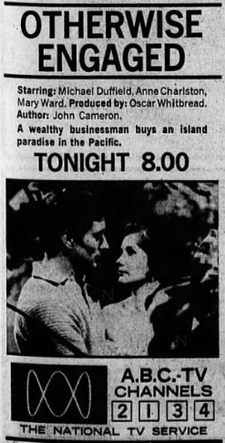
"Otherwise Engaged" is a 1965 Australian television film which aired on ABC. Broadcast in a 60-minute time-slot, it was written by John Cameron and produced in Melbourne. "Otherwise Engaged" aired on 2 June 1965 in Sydney, and Melbourne, and on 23 June 1965 in Brisbane.
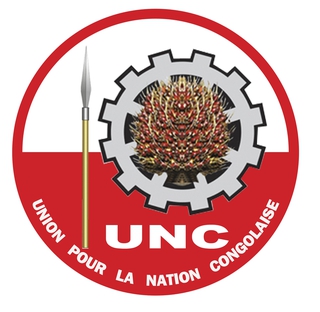
The Union for the Congolese Nation is a political party in the Democratic Republic of the Congo. It was founded in 2010 by Vital Kamerhe, who was at the time a close ally of the former president Joseph Kabila. Kamerhe had previously served as the Chief of Staff to Kabila and as the Speaker of the National Assembly.

The First Republic of the Congo Civil War, also known as the First Brazzaville-Congolese Civil War, was a conflict in the Republic of the Congo which lasted from 2 November 1993 to 30 January 1994 and was between rival militias led by former politician Bernard Kolelas, former Prime Minister Pascal Lissouba, and former President Denis Sassou-Nguesso. It was one of four instances of militia fighting within the country, setting the stage for the next three conflicts in 1997, 1998–99, and 2002. The war was a direct result of unresolved claims of election fraud in the 1992 presidential election. The First Congo Civil War and the decade of conflict that followed resulted in the deaths of over 12,000 people and the displacement of 860,000 more.
Outpost is a 1959 Australian television play about Australian soldiers in New Guinea during World War Two. It was written for television by John Cameron.
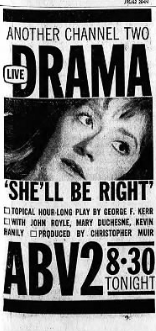
She'll Be Right is a 1962 Australian television play which aired on the ABC.

The Free Republic of the Congo, often referred to as Congo-Stanleyville, was a short-lived rival government to the Republic of the Congo (Congo-Léopoldville) based in the eastern Congo and led by Antoine Gizenga.
Marriage Lines is a 1962 Australian television play directed by Christopher Muir.
Jean Miruho was a Congolese politician who served as President of Kivu Province.

The 1936 uprising in Spanish Guinea was an armed conflict over the control of Spanish Guinea during the course of the Spanish Civil War. Fought between the republican and nationalist forces between September and October 1936. The nationalists initially took control of Fernando Po on 19 September, later seizing control of the rest of the colony after receiving reinforcements in October.













